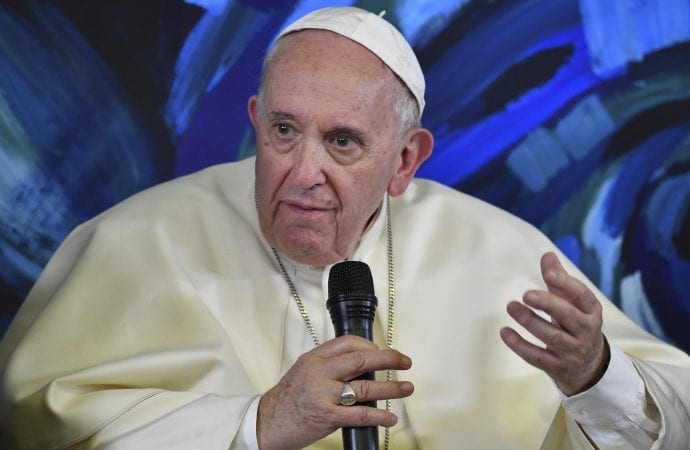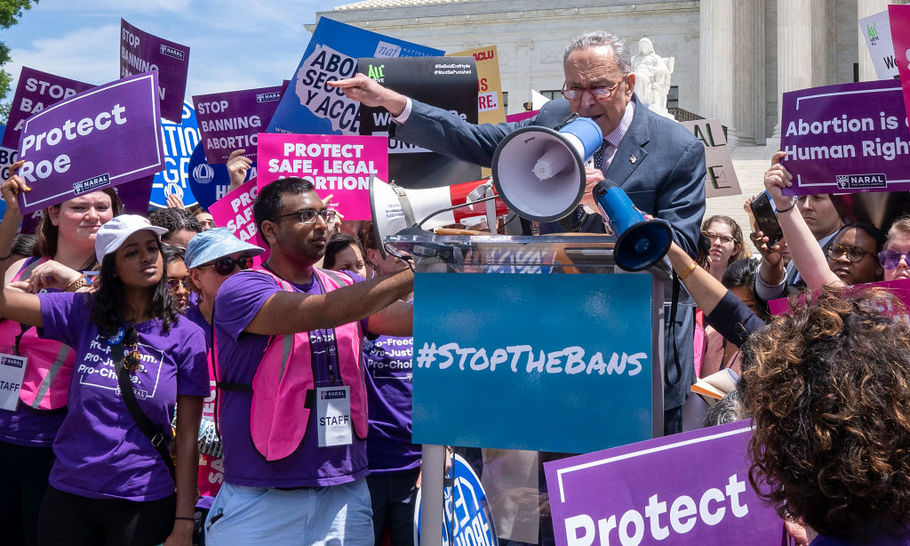
ROME – In light of changing definitions of love and sexuality fueled by “gender theory,” the Vatican on Monday released a new document looking into issues such as “third sex,” transgenderism, and polyamory.
The document was released by the Congregation for Catholic Education and discussed the response Catholic schools should have to the changing societal landscape.
Titled Male and Female He Created Them: Towards a path of dialogue on the question of gender in education, the document is in many ways a compilation of several remarks given by Pope Francis, who has often expressed his concern over the impact gender ideology has on children.
The 30-page document begins with three quotes from the last three popes: Pope Francis, Pope emeritus Benedict XVI and St. John Paul II.
In Francis’s words, gender theory “denies the difference and reciprocity in nature of a man and a woman and envisages a society without sexual differences, thereby eliminating the anthropological basis of the family.”
This ideology, the quote continues, “leads to educational programs and legislative enactments that promote a personal identity and emotional intimacy radically separated from the biological difference between male and female. Consequently, human identity becomes the choice of the individual, one which can also change over time.”
The Argentine pope has often spoken against this ideology, saying that it harms children and that it’s an attack against the family.
The document, signed by Cardinal Giuseppe Versaldi on Feb. 2, says that “it is becoming increasingly clear that we are now facing what might accurately be called an educational crisis, especially in the field of affectivity and sexuality.” Quoting Benedict, it claims that in many places, educational curricula are being planned and implemented which “allegedly convey a neutral conception of the person and of life, yet in fact reflect an anthropology opposed to faith and to right reason.”
Yet, the document says this issue should not be looked at in isolation from what John Paul II defined as “education in the call to love,” which should offer “a positive and prudent education in sexuality” within the context of the inalienable right of all to receive “an education that is in keeping with their ultimate goal, their ability, their sex, and the culture and tradition of their country, and also in harmony with their fraternal association with other peoples in the fostering of true unity and peace on earth.”
The final quote belongs not to the Polish pontiff, but to the Second Vatican Council Declaration on Christian Education, Gravissimum Educationis.
In an introductory letter, Versaldi said that the idea for it came in 2017, during the congregation’s general assembly, after bishops from around the world expressed their concerns over the growth of gender education in schools.
According to the document, a distinction has to be drawn between gender ideology and the research on gender that human sciences have undertaken.
The ideologies of gender, as Francis has said, also seek “to assert themselves as absolute and unquestionable, even dictating how children should be raised,” precluding dialogue. On the other hand, there’s work on gender which tries instead to “achieve a deeper understanding of the ways in which sexual difference between men and women is lived out in a variety of cultures.”
To the latter, the Catholic Church should be open “to listen, reason and propose.”
The document says in the present cultural context, “it is clear that sex and gender are no longer synonyms or interchangeable concepts, since they are used to describe two different realities.”
“Sex is seen as defining which of the two biological categories? … The problem here does not lie in the distinction between the two terms, which can be interpreted correctly, but in the separation of sex from gender,” it continues.
The separation of sex from gender is at the root of the various “sexual orientations,” the document argues. These are no longer defined by the sexual difference between men and women, but it can “assume other forms, determined solely by the individual.”
Furthermore, the concept of gender depends on the “subjective mindset of each person, “who can choose a gender not corresponding to his or her biological sex, and therefore with the way others see that person (transgenderism).”
The document also says that the duality in male-female couples is seen as a conflict with the idea of “polyamory,” meaning a relationship that involves more than two individuals. This leads to a claim that relationships are not necessarily built to last, and are instead flexible, depending on the desires of the individuals. This has “consequences for the sharing of the responsibilities and obligations inherent in maternity and paternity.”
This redefinition of gender and the plurality of new types of unions are in direct contradiction to the model of marriage as between a man and a woman, which in turn is portrayed as a “vestige of patriarchal societies.”
The ideal pushed forth by this redefinition is that individuals should be allowed to choose their status, and that society should not only guarantee this right but provide material support, “since the minorities involved would otherwise suffer negative social discrimination.”
Despite the clash this theory poses with Catholic education, the document acknowledges that there can be points in common, such as the fact that children should be taught to appreciate the equal dignity of men and women; to respect every person in their particularity and difference, so that no one should suffer bullying, violence, insults or unjust discrimination based on their specific characteristics (such as special needs, race, religion, sexual tendencies); and to appreciate the values of femininity.
Nonetheless, the most “radical forms” of gender theory also create “a gradual process of denaturalization,” giving both sexual identity and family a “liquidity” and “fluidity” that characterize other aspects of post-modern culture, often rooted with a “confused sense of freedom.”
These forms of ideology create educational programs that try to negate the sexual differences between men and women, and confuse freedom with the idea that people can act “arbitrarily as if there were no truths, values and principles to provide guidance, and everything were possible and permissible.”
The document acknowledges that in some cases, sex isn’t clearly defined. But it’s up to medical professionals to make a therapeutic intervention, and it’s not up to parents, or society, to make an arbitrary decision.
Male and Female He Created Them also argues that the process of identifying sexual identity is made more difficult by the “fictitious construct known as ‘gender neuter’ or ‘third gender’” which obscures the fact that “a person’s sex is a structural determinant of male or female identity.”
The ideas of intersex or transgender, the document says, lead to a masculinity or femininity that is ambiguous. In addition, these concepts “presuppose the very sexual difference that they propose to negate or supersede.”
The document also notes that even though gender ideology aims to remove the idea of complementarity between men and women, particularly when it comes to procreation, by proposing alternatives such as in vitro fertilization and surrogacy, at the end of the day, a man and a woman are needed for either process to work.
In keeping with the teachings of the Catholic Church, it also says that children enjoy the right to grow up in a family with a father and a mother.
The document also underlines the primacy of parents in educating their children, which is supplemented by the subsidiary role of schools and the Church. Quoting Francis, it also says that this educational alliance has entered into crisis.
“There is an urgent need to promote a new alliance that is genuine and not simply at the level of bureaucracy, a shared project that can offer a positive and prudent sexual education that can harmonize the primary responsibility of parents with the work of teachers,” the document says.
Follow Inés San Martín on Twitter: @inesanma
